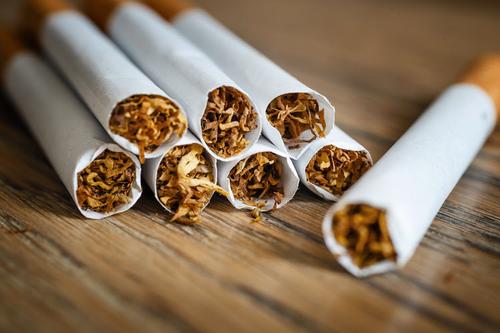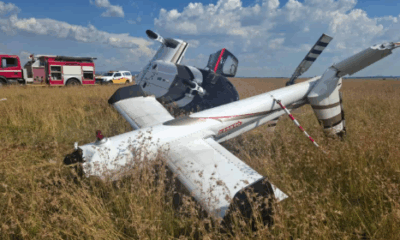Business
Illicit Trade Costs South Africa Billions: Industry Demands Urgent Government Action

South Africa is losing up to R30 billion a year to illicit trade in sectors like tobacco, alcohol, food, and wildlife—putting a strain on the country’s economy and its recovery efforts.
This is according to a new report by the Transnational Alliance to Combat Illicit Trade (TRACIT), compiled in collaboration with Business Unity South Africa (BUSA). Released this week, the report evaluates South Africa’s performance in tackling illegal trade and finds serious vulnerabilities—especially in areas like supply chain control, enforcement, and regulatory oversight.
“The time for bold policy and enforcement is now,” said Jeffrey Hardy, Director General of TRACIT. “Illicit trade continues to threaten South Africa’s economic recovery, drain public funds, and weaken investor confidence.”
R30 Billion in Lost Revenue
Illicit trade in tobacco and alcohol alone is responsible for roughly R30 billion in lost government revenue annually. Beyond the economic impact, illegal trade also fuels organised crime, weakens law enforcement capacity, and undermines legitimate businesses.
Philippe Van Gils, Director of Illicit Trade Prevention at Philip Morris International, warned that illegal trade is robbing the government of vital income and distorting the market.
“Illicit trade deprives the government of critical revenue, fuels organised crime, and puts legitimate businesses at a disadvantage.”
Industry Calls for National Strategy
Industry leaders are now calling on the South African government to adopt a national anti-illicit trade strategy. This would include:
-
Smart tax policies and regulatory enforcement
-
Stronger border and customs control
-
Deployment of track-and-trace technology in supply chains
-
Targeted anti-corruption measures
Van Gils said that South Africa also needs to pay special attention to Free Trade Zones and ports, which are often exploited by illicit traders.
“Modernizing customs, improving digital authentication, and increasing transparency in supply chain intermediaries are key steps,” he said.
Moderate Progress, Serious Gaps
According to the TRACIT Index, South Africa ranks 60th out of 158 countries, indicating moderate resistance to illicit trade. While the country scores well in trade and customs enforcement, it lags in regulation of intermediaries and sectoral illicit trade.
“The challenge lies in improving inter-agency coordination and plugging gaps in regulation that allow illicit networks to thrive,” the report noted.
A Crossroads for the Economy
Esteban Giudici, TRACIT’s Director of Programs, emphasized that unchecked illicit trade could deter foreign investment, distort legal markets, and undermine public safety.
“Despite progress, illicit trade remains deeply entrenched. Without a united and urgent response, these losses will only grow.”
Philip Morris South Africa said it remains committed to fighting illicit trade by:
-
Partnering with law enforcement
-
Investing in anti-fraud technologies
-
Supporting public awareness campaigns
-
Promoting regional cooperation
Van Gils concluded:
“The TRACIT Index offers a roadmap. We call on all stakeholders—government, business, and civil society—to align, act, and protect our economy.”
{Source: IOL}
Follow Joburg ETC on Facebook, Twitter , TikTok and Instagram
For more News in Johannesburg, visit joburgetc.com



























